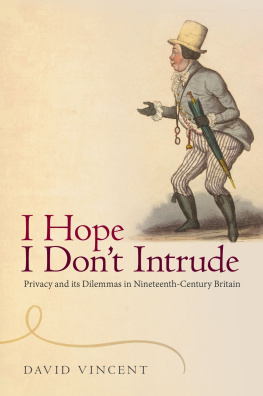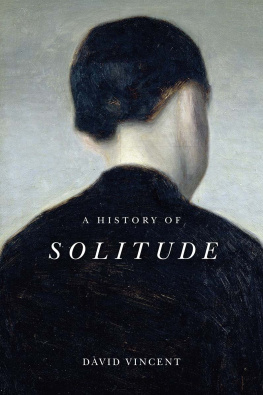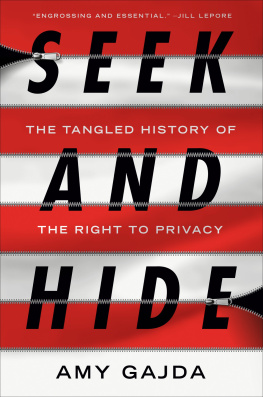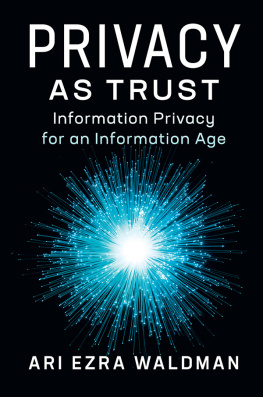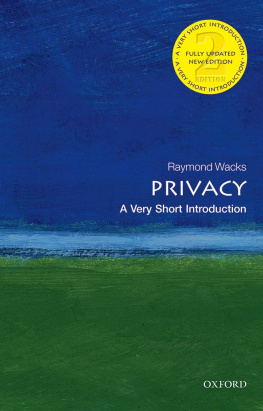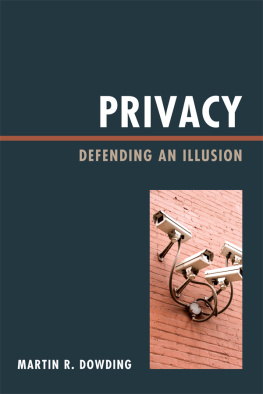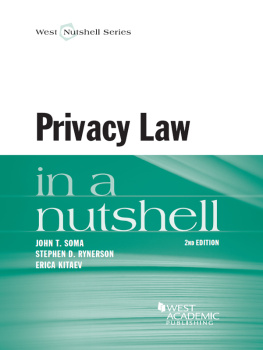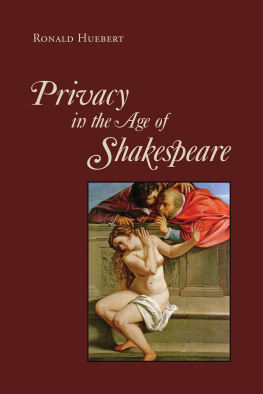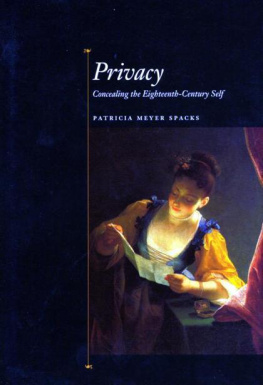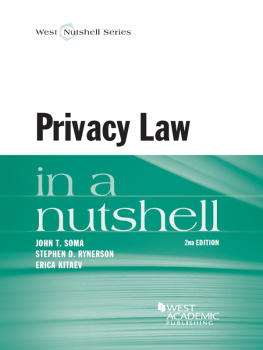I HOPE I DONT INTRUDE

Great Clarendon Street, Oxford, ox 2 6 dp , United Kingdom
Oxford University Press is a department of the University of Oxford. It furthers the Universitys objective of excellence in research, scholarship, and education by publishing worldwide. Oxford is a registered trade mark of Oxford University Press in the UK and in certain other countries
David Vincent 2015
The moral rights of the author have been asserted
First Edition published in 2015
Impression: 1
All rights reserved. No part of this publication may be reproduced, stored in a retrieval system, or transmitted, in any form or by any means, without the prior permission in writing of Oxford University Press, or as expressly permitted by law, by licence or under terms agreed with the appropriate reprographics rights organization. Enquiries concerning reproduction outside the scope of the above should be sent to the Rights Department, Oxford University Press, at the address above
You must not circulate this work in any other form and you must impose this same condition on any acquirer
Published in the United States of America by Oxford University Press 198 Madison Avenue, New York, NY 10016, United States of America
British Library Cataloguing in Publication Data Data available
Library of Congress Control Number: 2014955883
ISBN 9780198725039
ebook ISBN 9780191038143
Printed and bound by CPI Group (UK) Ltd, Croydon, CR0 4YY
Links to third party websites are provided by Oxford in good faith and for information only. Oxford disclaims any responsibility for the materials contained in any third party website referenced in this work.
For Esm, Frida, and Reuben
Acknowledgements
This book began life at Keele University. The interdisciplinary MA in Victorian Studies that I taught for many years has been the foundation of such capacity as I possess to work across so many forms of expression and creativity in the nineteenth century. My initial debt is to the students and staff on that course, and in particular to my late colleague Charles Swann, who was the first reader of an early outing of this enterprise, and supplied me with an invaluable range of references. The book was completed at the Open University, with its remarkable combination of expansive reach, high scholarship, and technical resources. I am grateful to its History Department for providing me with the necessary time and funding to finish the project.
Paul Pry has led me into new and unfamiliar fields, and I have been dependent on the advice and support of many colleagues. In particular Louis James, Jim Davis, and Brian Maidment have been exemplary in their combination of generosity of spirit and depth of scholarship. Bob Patten, master of Cruikshank and Dickens, was hugely supportive through the final trek to publication. Deborah Cohen, whose own book on privacy appeared towards the end of my work, showed just what could be achieved in this field through a combination of imaginative research and bold analysis, and was an insightful reader of this enterprise. Patrick Joyce and James Vernon set aside time in their own programme of writing to make constructive readings of the complete text. Assistance and advice on specific issues was supplied by Kirstie Ball, Sara Igo, Judith Mellby, John Naughton, John Plunkett, Michael Read, Clare Rose, Graham Vincent, and Susan Whyman. I thank Graham Tattersall for ambulatory discussions of the ideas in this book, and for advice on the technology of communication. Evie Ekins and Jo Reilly tracked down and photographed a present-day survival of Paul Pry. Gordon Shepherd helped me with the pursuit of Pry through the newspapers of late-Georgian and Victorian Britain.
This acknowledgement is being written on the day that the Guardian and the Washington Post won a Pulitzer Prize for their reporting of the Edward Snowden revelations. I Hope I Dont Intrude was conceived and researched well before the current explosion of media interest in privacy and surveillance, but I must thank Snowden and the journalists with whom he has worked for drawing attention to the complex interactions between governments, communications systems, and the democratic process and also for demonstrating the need for an historical perspective on the specific concepts and processes. In this context, Simon Szreter and the staff of the History and Policy site provided me with an opportunity to explore some of the connections between the past and the present.
A book about print, performance, and a largely unmechanized consumer culture could not have been written without the digital revolution which has permitted new forms of access to nineteenth-century archives. I am particularly fortunate in the facilities I have enjoyed at the Open University Library with its wide-ranging and professionally organized databases. More traditional assistance has been supplied by the staff of the Victoria and Albert Theatre and Performance Archive, the Bodleian Library, and the Rare Books Rooms of the Cambridge University Library and the British Library. Abby Yochelson and Kevin LaVine of the Library of Congress in Washington helped me with bibliographic inquiries into the American literature. I have greatly appreciated the interest and support of Robert Faber and Cathryn Steele at OUP. Charlotte Vincent was as always my ideal reader and my most encouraging listener. I can only hope that Paul Prys many intrusions into our lives can be forgiven, as he would have hoped. We both take absolute private pleasure in the dedication of the book.
Shrawardine, April 2014
Contents
The setting is a village fifty miles from London. The scene is a room in the house of Mr Witherton, a rich, elderly bachelor. He is in discussion with Mrs Subtle his scheming housekeeper, Grasp his steward, and Mr Willis, whom he believes to be a protg of his neighbour, Colonel Hardy, but is in reality his estranged nephew Somers. Grasp and Mrs Subtle are protesting at Mr Withertons proposal to make a gift of fifty pounds to his visitor. After an exchange of views, the stage directions prescribe: Grasp goes up and gives money to Willis, as they are going off. Enter Pry. Pry. Ha! How do ye do this morning. I hope I dont intrude?
Paul Pry was the eponymous hero of a new play by John Poole presented at the Haymarket Theatre on 13 September 1825. The Theatre Royal Haymarket was the unofficial third London patent theatre. A summer patent had been granted in 1766 to its manager, Samuel Foote, for the duration of his lifetime. This ran from 14 May to 14 September and enabled it to join Covent Garden and Drury Lane as the theatres legally entitled to perform drama. John Poole was the principal dramatist for comedy at the Haymarket. His first major success was Hamlet Travestie in 1810, and in the 1820s he was writing regularly for an established company of players.
The play was part of a standard triple bill, bracketed by a one-act comic piece and a musical farce [ The Morning Post, however, sent its reviewer back to the second evening. He found that the plays reception was growing:
The new Comedy of Paul Pry, which met with such decided success at its first representation on Tuesday evening, was repeated last night to a crowded house, with encreased applause. Considerable improvements have been made in some of the scenes, which render the plot less complicated, and the whole effect less heavy. It is to be regretted that more songs are not introduced; those, however, that were sung by Madame VESTRIS, The Lovers Mistake, and Cherry Ripe, were warmly encored.Mr LISTON kept the audience in roars of laughter until the falling of the curtain, when he stepped forward in character

